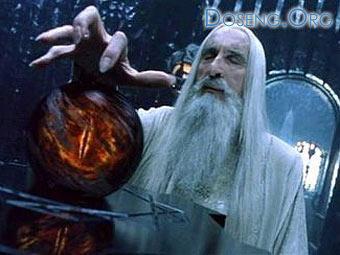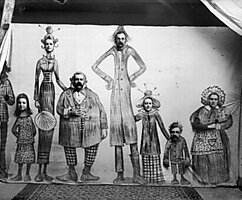Rating of unfulfilled predictions of technology
 Bashny.Net
Bashny.Net

To err is human. Exceptions to this rule no. But someone's mistakes go unnoticed and someone become the property of the public. The journalists TechRadar compiled a list of the most ridiculous technological predictions made by well-known people.
Contact
Opens a list of the statement published in the newspaper The Boston Post in 1865. It states that the voice on the wire transfer is not possible, and this is known to every literate person. However, if someone and be able to do it, no practical significance the move will not have.
After 11 years in a memo to employees of Western Union appeared the following entry: "The phone many flaws that it can not be seriously considered as a means of communication. This device is of no value. "
In 1878, the chief engineer of one of the post offices in the United States, William Preece (William Preece) has admitted that the phone may be needed to the Americans, but the postal service is not required. In its disposal sufficient couriers.
From our contemporaries rashly spoke about phones CEO of Microsoft Steve Ballmer. In 2007, he said that the iPhone will not be able to win the sympathy of buyers, while the share of Apple's cell phone market does not exceed 2-3 per cent (according to research by Gartner, in the first quarter of 2008, Apple had to share five percent of the world market of cell phones) . The share of phones running operating systems from Microsoft, Ballmer took up 80 percent of the market.
Radio and television
No less sad prospect many predicted radio, television and cinema. In particular, Lord Kelvin, inventor of the Kelvin temperature scale, in 1897, clearly stated that the radio has no future.
In 1948, the pioneer of radio educational Mary Somerville said that television has not met expectations and predicted his short existence. Two years earlier, the producer studio 20th Century Fox Darryl F. Zanuck said that terrestrial TV will not live more than six months, as people just get tired of playing every night in the "plywood box."
The inventor of sound film and vacuum tubes Lee De Forest called the idea of terrestrial TV achievable only in theory. The development of the art practice he considered a waste of time, and as stated in 1926.
Surprisingly, made famous in the movie Charlie Chaplin silent movie industry disliked. He called the movie a temporary fad, and was confident that audiences want to see a "flesh and blood" on a real scene by live actors.
All of them were wrong, including Harry Warner, who in 1927 asked the question: "Does the audience want to hear the voices of the actors in the movie?".
Computers and Internet
Most predictions had not come true in the computer field. That there is only one statement of the British professor Douglas Hartree, made in 1951. He was confident that the three computers UK, located in Oxford, Manchester and Teddington, will be sufficient to carry out any calculations. The more these devices do not need anyone, claimed Hartree.
Partially managed to predict the future of computer systems in March 1949, the magazine Popular Mechanics (Popular Mechanics): «If today's computing machine composed of 18,000 vacuum tubes and weighs 30 tons, in the future the amount of light it can be reduced to one thousand, and weight - up to one and a half tons. " The authors of the material could not be assumed that after a while the computer will weigh less than a kilogram, and it will not be any vacuum tube.
One of the editors of the publishing house Prentice Hall in 1957, traveled the length and breadth United States and talked with the best minds of the country, concluded that enthusiasm for the processing of data is only a temporary phenomenon, and after a year of it will be over.
The inventor of Ethernet and founder of 3Com Robert Metcalfe was confident that in 1996 the Internet waiting for the decline, which was to follow the strong growth of the popularity of the network in 1995.
Founder of Intel, Gordon Moore did not saw in the mid-seventies of the last century the potential of personal computers. Moore admitted that he proposed the concept of a computer, consisting of a system unit, monitor and keyboard. However, in answer to the question: "Why such a system might be needed?" - He heard a single response, which read that the computer is useful to housewives for recording and storing recipes.
Tehnolyapov noted in the list and IBM, whose representatives said the founders of Xerox, that the global market size copiers will not exceed five thousand devices.
But the most ridiculous possible to consider the prediction made in 1955 by the founder of the manufacturer of vacuum cleaners Lewyt Corporation Alex Levit. It states that in 1965, vacuum cleaners will establish a nuclear reactor.
No less absurd statement looks and CEO Alan Amstrad Shugera that the iPod will cease to exist by the end of 2006. Shuger apparently hates iPod, calling them spent and failure of products that come complete kaput.
Leader of errors
The most inaccurate predictions made Microsoft founder Bill Gates. The list TechRadar it is presented by three statements.
In 1983, Gates said that Microsoft would never let a 32-bit operating systems. In 1987 he said that the OS / 2 is destined to become the most important operating system in the world, and perhaps the best program of all time.
At the 2004 World Economic Forum, Gates predicted spam solution in two years.
It is a pity that the last prediction did not come true.
Tags
See also
Rating of the shortcomings of social networking
As we collected 823,376 pub. print books through crowdfunding
Smartphone military
5 most accurate predictions of scientists of the past
Test drive the robot vacuum cleaners
Rating electric cars in reserve on a single charge
The best main battle tanks of the world in 2012 (19 photos)
Delicacies that can kill
Interesting facts about the war
Stars and revenues. Top 10

















